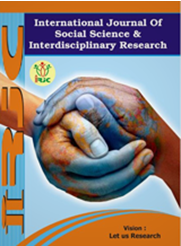The analysis of phraseological synonymic euphemisms with the meaning “to die”
Keywords:
phraseological units, phenomenon, euphemisms, extralinguistic, conventional, ideographic, stylistic, stylistic-ideographic, eupheminisation.Abstract
The current article is devoted to the study of one synonymic group of phraseological euphemisms which is investigated from the point of view of different types of synonyms and the synonymic group of phraseological euphemisms with the meaning “to die” and have been analyzed. The analysis of phraseological synonymic euphemisms with the meaning “to die” has shown that the synonymic group consists of different groups of synonyms: equivalent, stylistic and stylistic-ideographic.
References
Allan K. Euphemism and Dysphemism: Language Used as Shield and Weapon / K. Allan, K. Burridge // New York: Crown Publisher, 1991. – 326 p.
Burchfield R.Language awareness: Readings for college writers / R. Burchfield, A. Rosa, V. Clark //Boston: Bedford, 2000. – 512 p.
Hadfield Charles Writing Games / C. Hadfield // Nelson: 1990. – 470 [4]Hadfield Jill. Communication Games / J. Hadfield // Nelson: 1990. – 164 p.
Hey O. Euphemisms und Versants in Lateinischen / O. Hey // Leipzig: 1990.– 148 p.
Neaman J. S. Kind words: A thesaurus of euphemisms. / J. S. Neaman, C. G. Silver // New York: Facts on File, Inc., 1983. – 421 p.
Freud S. Totem and Taboo: Some Points of Agreement between the Mental Lives of Savages and Neurotics / S. Freud // New York: W. W. Norton & Company, 1950. – 246 p.
Rawson H. A dictionary of euphemisms and other doubletalk / H. Rawson // NewYork: CrownPublishers, Inc., 1992. – 308 p.
Scott W. The fortunes of Nigel / W. Scott // М.: АйрисПресс, 2003. – 267 p.
Twain M. he innocents at home / M. Twain // М.: АйрисПресс, 2000.– 164p
Абдуназарова, Нилуфар Ёрқинжон Қизи. "ДУНЁНИНГ ЛИНГВИСТИК МАНЗАРАЛАРИ ТИПОЛОГИЯСИДА МИЛЛИЙ ДУНЁНИНГ ЛИНГВИСТИК МАНЗАРАСИ МАСАЛАЛАРИ." Scientific progress 2.1 (2021): 1812-1816.
Karimova, V. A. "BRIEF OVERVIEW OF THE HISTORY OF THE STUDY OF THE TERMS OF KINSHIP IN UZBEK AND ENGLISH."
Назарова, Раъно Рахимовна. "СПЕЦИФИКА ОРГАНИЗАЦИИ СОЦИАЛЬНЫХ ПОЛЕЙ В АСПЕКТЕ СИСТЕМЫ ОБРАЩЕНИЙ В АНГЛИЙСКОМ, УЗБЕКСКОМ И РУССКОМ ЯЗЫКАХ." Главный редактор 129 (2016).
Zokirovna, Isakova Zilolakhon, Isakova Shoxidaxon Ikromovna, and Nishonova Shaxnoza Muh. "Expressing Linguistic Category Of Value In Lexicology In Comparison English And Uzbek Languages." European Journal of Molecular & Clinical Medicine 7.03 (2020): 2020.
Отабоева, Мазмуна Раҳимовна. "ЎЗБЕК ТИЛИДАГИ ҲОЛАТ ФЕЪЛЛАРИ ВА ИНГЛИЗ ТИЛИДАГИ САБАБ ФЕЪЛЛАРИ СЕМАНТИК КАТЕГОРИЯЛАРИДА ДАРАЖАЛАНИШ." INTEGRATION OF SCIENCE, EDUCATION AND PRACTICE. SCIENTIFIC-METHODICAL JOURNAL 3.6 (2022): 398-403.
Aliboeva, N. "THE EXPRESSION OF COMPARATIVE ANALYSIS." Science and innovation 1.B7 (2022): 93-95.
Зияев, Аваз Ихтиёрович. "ТИЛДА ИНТЕНСИФИКАЦИЯ/ДЕИНТЕНСИФИКАЦИЯ КАТЕГОРИЯСИНИНГ ГРАДУАЛ АНТОНИМЛАР ПАРАДИГМАЛАРИНИ ШАКЛЛАНТИРИШИ." МЕЖДУНАРОДНЫЙ ЖУРНАЛ ИСКУССТВО СЛОВА 6 (2019).
Ахмадалиева, Сабо Муродовна. "The Role of Phraseology in Learning English." Молодой ученый 3-1 (2016): 27-29.
Sodiqova, S. T. "INGLIZ VA O ‘ZBEK TILLARIDAGI O‘XSHATISH ETALONLARI VA ULARNING LINGVOMADANIY XUSUSIYATLARI." Oriental renaissance: Innovative, educational, natural and social sciences 2.5 (2022): 1123-1128.
Ataxojayev, T. M., and Y. M. Usmonov. "Non-linguistic factors in the formation of the touristic terminology in Uzbek Language." Asian Journal of Multidimensional Research (AJMR) 9.12 (2020): 99-102.
.Qodiralievich, Bektoshev Otabek. "Realization of the Concept in Modern Linguistics." International Journal on Integrated Education 3.12: 246-248.
Tukhtasinova, Zilola. "Изучение русских заимствований в узбекском языке." ТЮРКОЛОГИЯ В ПРОСТОРАХ ЕВРАЗИИ: ПРЕЕМСТВЕННОСТЬ ПОКОЛЕНИЙ (2020).
Tolibjonovich, M. T. (2021). The Constitution is a Legal Guarantee for the Development of the Country and the Well-Being of Society. International Journal of Human Computing Studies, 3(2), 105-109.
Abdullaev, A. N. (2017). THE ROLE OF THE NATIONAL TRADITIONS AND RITES IN FAMILY UPBRINGING. Modern Science, (4-2), 6-8.
Jamoliddinovic, U. B. (2022). Origins, Dynamics and Logics Bologna Process. European Multidisciplinary Journal of Modern Science, 5, 239-245.
Downloads
Published
How to Cite
Issue
Section
License
Copyright (c) 2022 GEJournals

This work is licensed under a Creative Commons Attribution-NonCommercial-NoDerivatives 4.0 International License.





